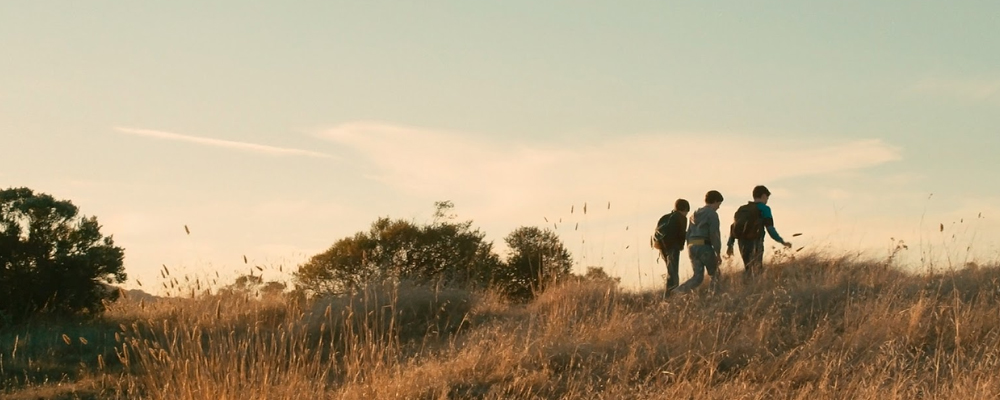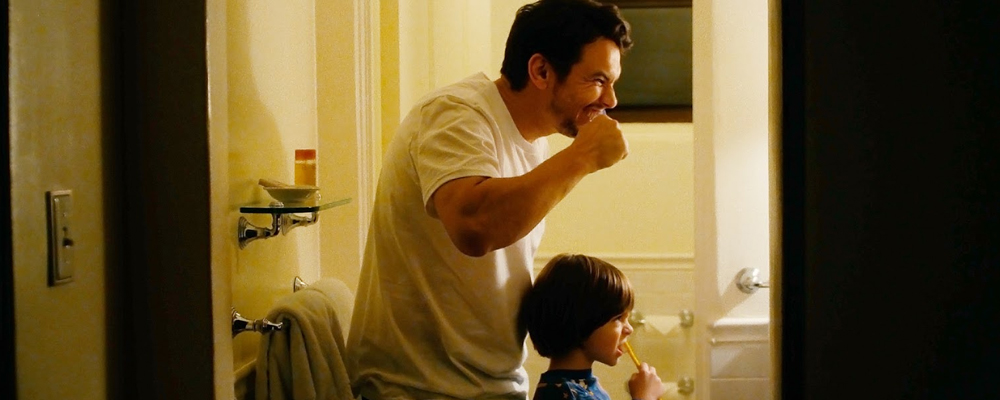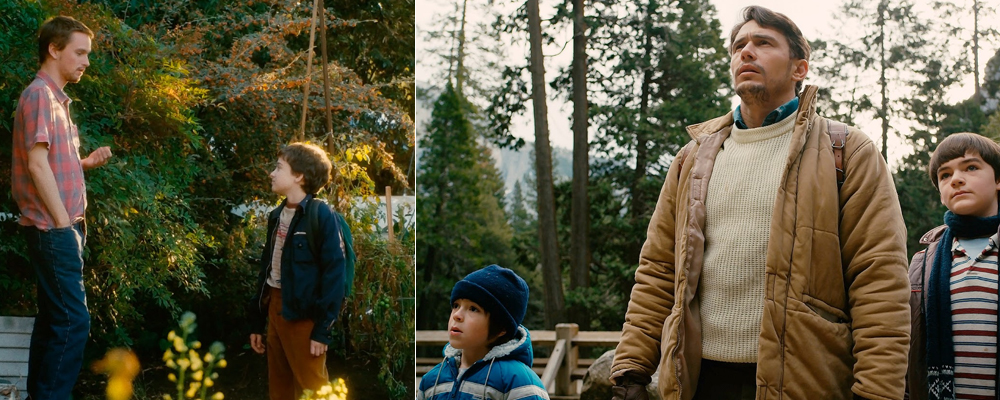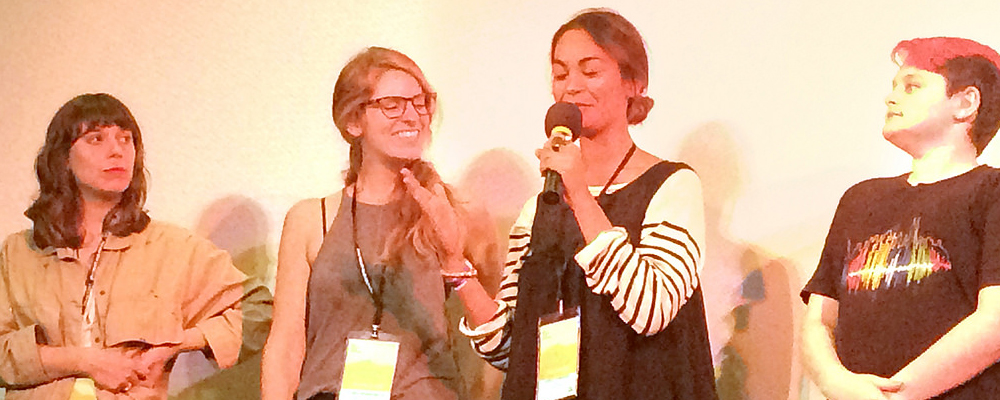Director Gabrielle Demeestere Discusses ‘Yosemite’ and Working With James Franco
Sandra Miska
Director Gabrielle Demeestere teamed up with her NYU classmate, James Franco, for her first feature. Franco provided not only his acting talent but also two of his short stories for source material and the result was “Yosemite,” a drama centered around three fifth-grade boys and how they are affected by the looming threat of a mountain lion in 1985 Palo Alto.
Demeestere recently spoke with EV about working with Franco, her filmmaking journey and being a woman in the film industry.
Can you tell us how you met James Franco and how your creative partnership came about?
We were classmates in the graduate filmmaking program at NYU and we were actually put in the same crew of four people our first year to work on each other’s short films. So, that was kind of the first time we worked together. We became friends over the course of several years in film school. By third year, you have to start thinking about your thesis film for NYU, and he asked me if I wanted to adapt these two short stories about childhood into a feature film. That was around the same time he was asking Gia Coppola to do the “Palo Alto” movie. I think he was also thinking of different ways to help out young filmmakers to get their first movies made, and he liked some of my work and short films that I directed.
When you were adapting this script from James’ short stories did he help you at all? Or were you on your own?
I was on my own mostly because he left me a lot of freedom and he was happy to see what I would do with it. I think that was exciting – to see what someone with a different voice [would do]; how they would take those stories and turn them into something else. But then, I asked him questions once in a while and we had a script reading and this was the most important moment, I think, in terms of the collaboration because he gave his feedback on the script and gave really good notes. I also asked him a lot about the characters and got more in-depth with everything. But that was after I had written a couple drafts already. But he read everything along the way and was really helpful.
Did you know from the beginning that James was going to play the role of the father? Or was that something that was decided later in the process?
No, that came up later after I had written a couple of drafts, and he was like, “Oh, you know it might be great if I play the dad.” I didn’t really realize it at the time but a few weeks before we were shooting I realized how emotional it was for him because his dad had passed away the year before, and I think “The Trip” was really like more so probably than the other stories, though I’m speculating, was the most autobiographical. He had actually taken this trip with his brothers and his dad and when we were shooting the film he had mentioned how uncanny it was to revisit all the same places and basically re-experience the trip as an adult as his dad.
Was it all filmed in Yosemite and the Bay area?
Yeah, we filmed it in Palo Alto and we got a lot of support there because it’s James’ hometown so people were excited that we were making a film, and they were really wonderful about just working on the film or showing us great locations or lending us old computers. We were really lucky in that regard. We shot in Yosemite, and we had to go through the whole long process of getting permission, but my producer Clara Aranovich was really helpful. It took a while, but they were very friendly to us filming there. We just had to respect a lot of environmental rules and be very diligent and strict about, basically, taking everything out of the park that we brought in.
Was there any particular reason why the film was set in 1985?
Yeah, that’s the time that the stories take place in. I guess there’s not a year in the stories, but based on the ages of the characters and James’ birth date and some of the period details that was the year that I figured made sense. I thought about making it contemporary but when I went to Palo Alto and observed the kids now, it’s very different. There’s no way kids would have that kind of freedom and autonomy today. It was almost impossible to adapt it in a funny way.
Is there meant to be any connection between the mountain lion and how things were changing in that area of the country at the time with Silicon Valley becoming more prominent?
Yeah, that was the mountain lion story. It was mentioned in James’ story, but it’s not a true event or anything. But there were some mountain lion attacks I think in the Los Angeles area at that time. Once I started researching that, I thought it was interesting to see how California had changed and the more economic growth there was and the more the suburbs expanded, you had these more and more frequent accidents with wild animals coming to eat in the suburbs and the boundaries being pushed farther and farther back. So it seemed to fit in nicely with being an exploration of that place and what may be different – the contrast between then and now.
This was your thesis film and you had a big-name actor, multiple minor actors and animals. Was it daunting at all?
Yeah [laugh]. It was really challenging. The kids were actually the part where I’m always like, everyone says that’s hard and that went really well and we got along really well. That was strangely easy. The fact that they had such short working hours was really tough because we had a small budget and we filmed for 17 days. With adults, you have full 10-hour days, but we had shorter days. So that was the biggest challenge – the schedule. I guess we had a problematic cat [laughs] who wouldn’t move at all. So the animal thing I can confirm is true; Cats are very difficult to wrangle.
James recently said in an interview that women make better directors and that he’s very encouraging of there being more women in film. What do you think can be done to encourage more women to become filmmakers?
I think that there are a lot of women who want to be filmmakers or are training to become filmmakers because half of my class at NYU in the grad program was women. I think that the problem now is just having access to Hollywood, which I think is much more closed off to hiring female filmmakers. It’s notoriously difficult for a woman to make the leap from [her] first to second film. I think it’s more of an industry problem than women not wanting to make films. James has been really amazing at supporting women and women filmmakers. He’s produced a lot of first films by women, which is great of him.
What’s your next project?
I’m working on a TV pilot that I co-wrote with a close friend of mine and we’re excited to go and pitch. We’re working with a production company called Tangerine that’s been great, and then I’m writing another original script.
Would you work with James again?
Yeah, of course. I’d love to.
“Yosemite” is currently playing in New York and opened Jan. 8 San Jose, CA. It opens Jan. 22 in Los Angeles with more national dates to follow.




